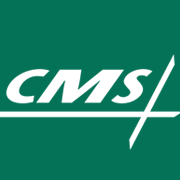CMS Clarifies Medicaid Uncompensated Care Reimbursement Plan
Medicaid Disproportionate Share Hospital payments would account for third-party reimbursements when calculating uncompensated care costs.

- CMS plans to use third party and Medicare claims reimbursements to calculate hospital-specific uncompensated care costs and distribute Medicaid Disproportionate Share Hospital payments, according to a proposed rule from the federal agency.

The proposed rule clarifies the methodology for determining Medicaid Disproportionate Share payments, which are designed to help hospitals shoulder the economic burden of treating larger proportions of Medicaid and uninsured patients.
While states distribute the uncompensated care payments to hospitals, CMS released the rule to standardize the way states calculate the amounts. The regulation has been a pain point for the federal agency since many hospitals failed to disclose how much they receive from other payers other than Medicaid, including Medicare and private insurers, based on their interpretation of the program’s requirements:
Specifically, this rule would make clearer in the text of the regulation an existing interpretation that uncompensated care costs include only those costs for Medicaid eligible individuals that remain after accounting for payments received by hospitals by or on behalf of Medicaid eligible individuals, including Medicare and other third party payments that compensate the hospitals for care furnished to such individuals. As a result, the hospital-specific limit calculation would reflect only the costs for Medicaid eligible individuals for which the hospital has not received payment from any source (other than state or local governmental payments for indigent patients).
The federal agency explained that state calculations of uninsured costs and Medicaid shortfalls must reflect the hospital’s actual healthcare costs of treating Medicaid and uninsured patients, net of all Medicaid reimbursements except Disproportionate Share Hospital payments, and net of third-party payments, including Medicare reimbursements.
By explicitly incorporating third-party payments into the Medicaid Disproportionate Share Hospital payment methodology, CMS intends to ensure that only actual uncompensated care costs are accounted for and resources are more accurately allocated to hospitals that produce financial shortfalls by treating Medicaid patients.
The federal government limits the amount states receive to distribute Medicaid Disproportionate Share Hospital payments, stated CMS. Therefore, hospitals that inflate their uncompensated care costs by not including third-party payments would receive a disproportionate amount compared to hospitals that actually maintain a financial shortfall.
“The clarification included in the final rule and associated implementation promotes fiscal integrity and equitable distribution of DSH [Disproportionate Share Hospital] payments among hospitals by preventing payment to DSH hospitals based on costs that are covered by Medicare or a private insurer,” CMS wrote.
“It also promotes program integrity by ensuring that hospitals receive Medicaid DSH payments only up to the actual uncompensated care costs incurred in providing inpatient and outpatient hospital services to Medicaid eligible individuals or individuals with no health insurance or other source of third party coverage.”
The proposed clarification comes months after a Government Accountability Office (GAO) report advised CMS to base uncompensated care payments to hospitals on actual healthcare costs incurred while treating Medicaid and uninsured patients.
The federal watchdog reported that CMS does not include Medicaid uncompensated care payments a hospital receives when determining Medicare reimbursements for the same purpose.
“As a result, in determining Medicare UC [uncompensated care] payments, it is important that CMS, in fulfilling its role as an efficient payer of healthcare services, take into account the Medicaid payments eligible hospitals have received for these costs to ensure that Medicare UC payments are most effectively aligned with hospitals’ actual uncompensated care costs,” the report stated.
GAO also found that the majority of federal uncompensated care payments, including Disproportionate Share Hospital payments, are calculated based on the number of days a hospital spends treating Medicaid and low-income patients. By neglecting to determine uncompensated care payments based on actual costs, the report stated that hospitals receive disproportionate amounts, especially as more individuals gain coverage through Medicaid expansion programs and the Affordable Care Act.
While GAO recommended changes to uncompensated care payments, CMS has included provisions in the proposed clarification to further align its payments to hospitals with actual healthcare costs. The proposed rule would help to appropriately distribute funds to hospitals that serve more Medicaid patients and drive down unnecessary Medicaid spending.
CMS encourages stakeholders to submit comments on the proposal by October 14.
Dig Deeper:
• Key Ways to Boost Collection of Patient Financial Responsibility
• Uncompensated Care Drops by $6B after Medicaid Expansion
